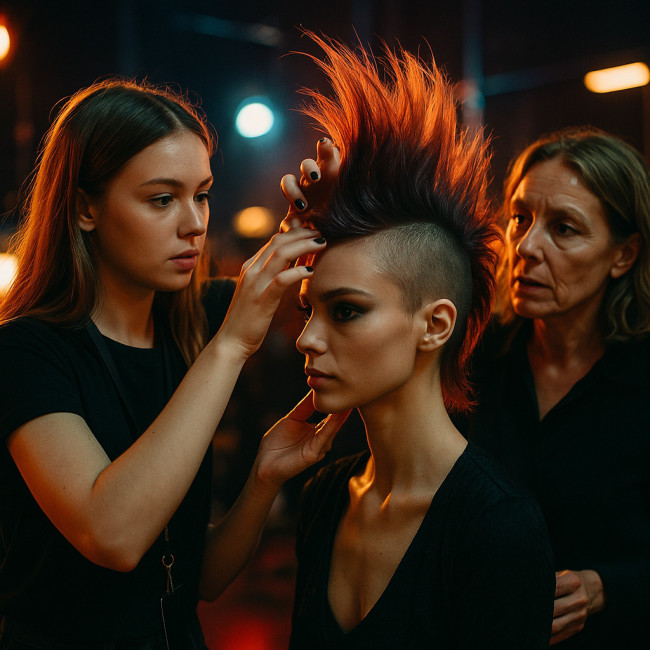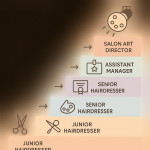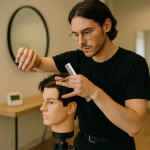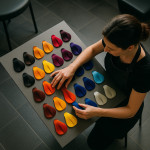How mentorship accelerates a coiffeur's mastery of avant-garde cuts
Mentorship turns years of trial-and-error into a structured journey toward creative excellence. Discover how a seasoned guide can slice learning time in half, boost client confidence, and place your avant-garde haircuts at the forefront of fashion editorials.
Why mentorship is a game-changer for avant-garde haircuts
Avant-garde haircuts demand bold geometry, flawless execution, and the confidence to defend artistic choices on set. Working under a mentor gives you:
- Real-time feedback that corrects scissor angles before bad habits settle.
- Context—you learn why a technique matters, not just how.
- Portfolio leverage by collaborating on experimental looks that catch producers' eyes. (See portfolio tweaks for coiffeurs.)
- Network access to fashion week teams and editorial shoots you would rarely reach solo.
The four phases of accelerated learning under a mentor
1. Immersive observation
Shadow sessions allow you to map every movement: sectioning patterns, wrist rotation, tool swaps, and even client dialogue. Record key moments and sync them with timestamps in a digital journal so you can revisit micro-details later.
2. Guided repetition
Your mentor assigns precision drills—one-length bob, tight undercut, or disconnected fringe—until muscle memory forms. Daily practice on mannequin heads pays off fast; check daily scissor routines for structured drills.
3. Creative experimentation
Once fundamentals lock in, the mentor introduces asymmetry, sculptural layering, and color blocking. Using AI moodboards, you co-design bold shapes that push boundaries while staying technically sound.
4. Industry exposure
Finally, you assist on live shoots, backstage shows, or brand demos. Tight timelines teach speed; high-definition lighting exposes every flaw and refines your finesse. Check the pro stylist training hub for upcoming mentor-led backstage placements.
Choosing the right mentor
Not every award-winning stylist makes a great teacher. Use this checklist before committing:
| Criterion | Ideal Mentor Profile | Red Flag |
|---|---|---|
| Specialisation | Proven avant-garde portfolio & trend reports | Only commercial cuts |
| Teaching style | Demonstrates, explains, then lets you try | Rushes demonstration, little practice time |
| Feedback rhythm | Constructive critiques each session | Generic “good job” comments |
| Industry access | Regularly leads fashion week or editorial teams | Limited external collaborations |
| Contract clarity | Outlines goals, timeline, and rates | Vague promises, no written agreement |
Results you can measure
Studios tracking junior stylists saw marked improvements when mentors were involved. The data below compares months required to reach proficiency in key avant-garde techniques.
Source : European Hairdressing Education Board, 2023 report
Case study: six months to runway-ready

Lena, a junior stylist, entered a six-month mentorship focused on avant-garde layering. By month two, she created a sculptural mohawk published in an indie magazine. Month four saw her join a fashion week team, leading fringe detailing on 12 models in one night. At program end, her day rate rose 40%, and she signed three editorial contracts—an outcome rarely achieved by peers without mentoring.
Common pitfalls and how to dodge them
- Passive learning. Bring questions and propose risks; mentors reward initiative.
- Portfolio clutter. Cull older work monthly—show only pieces aligned with your new direction.
- Ignoring business skills. Pair creative coaching with proposal-writing tips to convert artistry into revenue.
- No contingency kit. When assisting on shoots, pack a rapid-response styling kit to handle surprises.
Quiz: Are you mentor-ready?
FAQ
- How long before I see tangible improvement?
- Most mentored stylists report sharper sectioning and cleaner lines within four weeks, with avant-garde proficiency appearing after three to six months.
- Do I need to leave my salon job?
- No. Many programs run evenings or designated “education days,” allowing you to maintain income while upskilling.
- What should I bring to the first mentor session?
- Bring sharp shears, razors, three mannequin heads, a phone or DSLR for progress photos, and a list of specific goals.
- How much does mentorship cost?
- Rates range from €300 for a weekend workshop to €3,000+ for a six-month one-to-one program, often offset by higher post-training earnings.
Take your next step
The gap between competent and iconic coiffeur work often lies in guided experience. Invest in mentorship today, and your avant-garde haircuts could headline the next couture show. Ready to act? Reach out to a trusted mentor or training hub and carve your path to creative mastery.











